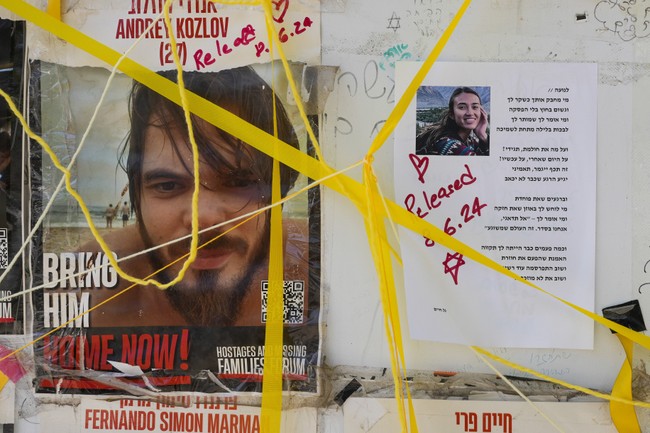We support our Publishers and Content Creators. You can view this story on their website by CLICKING HERE.

The Israeli Health Ministry has compiled a report, detailing the horrific conditions hostages in Gaza have faced at the hands of their Hamas captors, and it’s about as gruesome as you can imagine. Israel plans to submit the report to the United Nations this week. The information is based on interviews with the personnel who provided medical and other types of care to many of the hostages who were freed in late November 2023. According to the Jerusalem Post, the report uses pseudonyms to protect their identities.
Advertisement
Warning: Graphic Content Ahead
Men, women, and children were all subjected to both physical and psychological abuse through actions like sexual assault, starvation, branding, water deprivation, withholding necessary medical care, hair pulling, beatings, and various other means of torture.
When they weren’t being deprived of food and water, they were given such low-quality meals that doctors believe some of the children may suffer from long-term developmental and health issues. The lack of nutrition also led to health problems like sarcopenia, a condition often associated with age that leads to loss of muscle mass and strength, and refeeding syndrome, a condition brought on when a person eats rapidly after undergoing a period of malnutrition that can lead to a fatal electrolyte imbalance. Some lost up to 18% of their body weight.
According to the Times of Israel, teenagers were forced to undress, molested by captors, and made to perform sexual acts on each other. They also had their genitals whipped. Women of all ages, including minors, were also forced to undress, and some say they were bound to beds and watched by their captors. Others claim their captors sexually assaulted them.
Advertisement
Some of the hostages, including children, returned with scars and burns where they were branded with heated objects. Some were missing hair that was pulled out by their captors.
Men report they were denied access to a bathroom and treatment for medical conditions or injuries. The Jerusalem Post suggests that at least one hostage died from untreated medical conditions. Older hostages, who were bound and unable to move, developed deep venous thrombosis.
Even though these hostages were released after almost two months in captivity, many of them require ongoing medical care, while others have suffered from severe psychological issues brought on by the ordeal. Many reported issues like sleep deprivation, recurring nightmares, survivor’s guilt, and derealization. Even worse, some of them returned to find that their homes were destroyed or their families and friends were murdered by Hamas, so they had no support to help them through their recovery.
Earlier this year, Andrey Kozlov told CNN of the psychological and physical abuse he endured while he was held captive in Gaza for eight months. He said punishments were “creative” and arbitrary. For example, he was covered in blankets on a hot day and made to lie in the sun as a punishment for washing his hands before eating. But Kozlov maintained that he was treated much better than some of the other hostages he witnessed during his time in captivity, refusing to talk about some of what he saw.
Advertisement
Despite these gruesome details provided by the hostages and their care providers, Reuters reports that “Hamas has repeatedly denied abuse of the 251 hostages abducted from Israel during its Oct. 7, 2023 assault.”
According to the Washington Post, Israel believes that 62 hostages who remain in Gaza custody are still alive.

 Conservative
Conservative  Search
Search Trending
Trending Current News
Current News 







